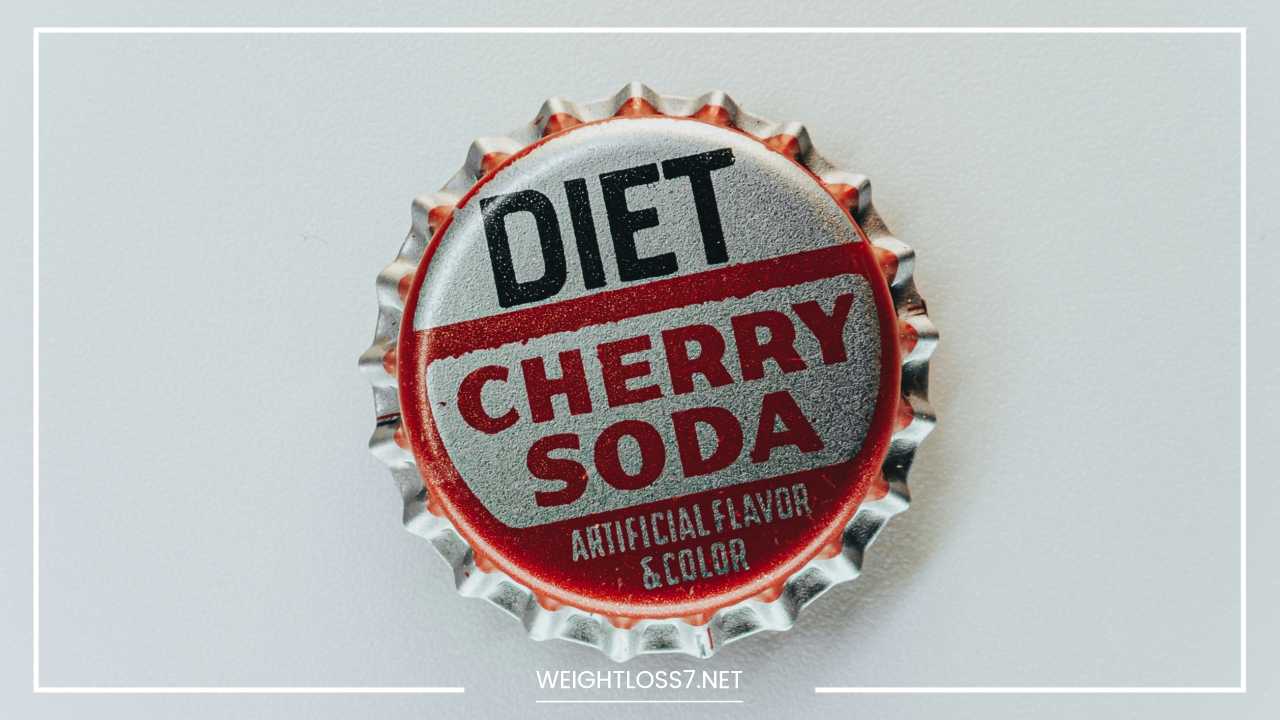Why is Diet Soda Bad for You

Diet Soda
Diet Soda: The Fizzy False Friend? A Deep Dive
Diet soda has been a ubiquitous presence in our refrigerators and on our restaurant menus for decades. Marketed as a sugar-free, guilt-free way to enjoy the fizz and flavor of soda, it’s become a go-to beverage for many.
But beneath the refreshing bubbles lies a potential can of worms. Emerging research suggests that diet soda might not be the innocent alternative it seems.
Let’s delve deeper into the science behind diet soda and explore the reasons why it might not be the healthiest choice.
The Artificial Sweetener Quandary
One of the primary concerns surrounding diet soda lies in its core ingredient: artificial sweeteners. These sugar substitutes offer a tantalizing promise – sweetness without the calories. However, the human body doesn’t process them the same way as natural sugar. This difference can have a ripple effect on our health:
-
Metabolic Disruption: Artificial sweeteners may disrupt the gut microbiome, the delicate ecosystem of bacteria residing in our intestines. These bacteria play a crucial role in digestion, immune function, and even regulating blood sugar levels . Studies suggest that artificial sweeteners might alter the composition of gut bacteria, potentially contributing to insulin resistance and metabolic disorders like type 2 diabetes.
-
Brain Games: Our taste buds send signals to the brain, triggering reward pathways and influencing our cravings. Artificial sweeteners activate these pathways to some extent, creating a sense of sweetness without delivering the expected calorie intake. This disconnect can confuse the body, potentially leading to increased cravings for sugary foods and difficulty regulating appetite.
-
Long-Term Impact: The long-term effects of consuming artificial sweeteners are still under investigation. However, some studies suggest a possible link between diet soda consumption and cognitive decline, dementia, and stroke. While more research is needed, these findings raise concerns about the potential impact of artificial sweeteners on brain health.
Beyond Sweeteners: A Look at Other Ingredients
Artificial sweeteners aren’t the only concern when it comes to diet soda. Here are some other ingredients that raise eyebrows:
-
Artificial Flavors and Colors: While generally recognized as safe (GRAS) by regulatory bodies, some artificial flavors and colors have been linked to behavioral problems in children, such as ADHD and hyperactivity. Additionally, some studies suggest potential links to certain cancers, although more research is needed to confirm these connections.
-
Phosphoric Acid: This acidic ingredient adds a tangy bite to diet soda but can contribute to bone loss by leaching calcium from bones. It can also erode tooth enamel, increasing the risk of cavities.
The Weight Gain Paradox
Diet soda seems like an obvious choice for weight management, but the reality might be more complex. Some studies suggest a paradoxical link between diet soda consumption and weight gain. This could be due to several factors:
-
Cravings and Compensation: As mentioned earlier, artificial sweeteners might trigger cravings for sugary foods, leading to increased calorie intake elsewhere in the diet.
-
Insulin Response: Studies suggest that artificial sweeteners might disrupt the body’s natural insulin response, even though they are calorie-free. This could potentially lead to increased hunger and difficulty regulating blood sugar levels.
-
Psychological Factors: Some people might view diet soda as a “healthy” option, leading them to be less mindful of portion sizes and overall calorie intake for the rest of the day.
The Big Picture: Diet Soda and Overall Health
So, is diet soda inherently bad for you? The answer, like most things in life, is nuanced. Here’s a breakdown to help you make informed choices:
-
Moderation is Key: If you enjoy an occasional diet soda, it probably won’t derail your health goals. However, if you’re a daily, heavy consumer, it might be wise to cut back and explore healthier alternatives.
-
Individual Considerations: Underlying health conditions and personal sensitivities can influence how your body reacts to diet soda. If you have concerns about diabetes, metabolic syndrome, or experience digestive issues after consuming diet soda, talk to your doctor.
-
Focus on Hydration: Aim for eight glasses of water per day – this should be the foundation of your beverage choices. Water is essential for countless bodily functions and keeps you feeling energized.
Making the Switch: From Diet Soda to Delicious Alternatives
Ready to ditch diet soda and embrace healthier beverage options? Here are some tips to make the transition smooth and satisfying:
-
Wean Yourself Off Gradually: Don’t go cold turkey! Start by replacing one or two diet sodas per day with water or healthier alternatives. Gradually reduce your intake over a few weeks.
-
Explore Flavorful Substitutes: Sparkling water with natural fruit flavors or a squeeze of citrus can provide a refreshing fizz without the artificial sweeteners. Unsweetened Herbal teas offer a delightful variety of flavors and potential health benefits. Explore options like peppermint for digestion, chamomile for relaxation, or ginger for a warming kick. Seltzer with a splash of fruit juice creates a naturally sweetened and refreshing drink. Homemade fruit-infused water adds a subtle sweetness and a touch of visual appeal.
-
Pair with Food: Fizzy drinks can be particularly appealing with meals. Opt for sparkling water with a squeeze of citrus or unsweetened iced tea to complement your food.
-
Find Your Fizzy Fix: If you crave the carbonation of soda, explore sparkling water brands that offer a variety of flavors derived from natural ingredients. Some brands even offer sparkling water with a hint of fruit juice for a touch of sweetness.
-
Make it a Habit: Develop a routine of reaching for water throughout the day. Keep a reusable water bottle with you and refill it regularly. Invest in a fun water bottle you’ll enjoy carrying.
-
Celebrate Small Wins: Acknowledge your progress, no matter how small. Replacing even one diet soda a day with a healthier alternative is a step in the right direction.
The Bottom Line: Hydration is Key
Diet soda might not be the health villain some portray it to be, but research suggests it’s not entirely without drawbacks.
By understanding the potential downsides and exploring healthier alternatives, you can make informed choices about what beverages fit best into your lifestyle. After all, staying hydrated and ditching sugary drinks are key components of a healthy diet.
Beyond Diet Soda: A Broader Look at Beverage Choices
While diet soda is a popular focus, it’s important to consider the broader landscape of beverages and their impact on health:
-
Sugary Drinks: Regular soda, fruit juices, and sports drinks are loaded with sugar, contributing to weight gain, increased risk of diabetes, and dental problems. Moderation is key, and water should be the primary source of hydration.
-
Coffee and Tea: In moderation, coffee and tea can offer health benefits. Coffee can boost alertness and cognitive function, while tea is rich in antioxidants. However, be mindful of added sugars and choose unsweetened varieties whenever possible.
-
Alcohol: Excessive alcohol consumption can have a significant negative impact on health, contributing to liver damage, heart disease, and certain cancers. Moderation is crucial.
Unveiling the Science: A Deeper Look at Diet Soda Research
While this blog post has explored the potential downsides of diet soda, it’s important to acknowledge the ongoing nature of scientific research. Here’s a section that delves deeper into the studies surrounding diet soda and its health implications:
-
The Challenges of Observational Studies: Much of the research on diet soda comes from observational studies, which track people’s habits and health outcomes over time. These studies can identify associations between diet soda consumption and certain health risks, but they cannot definitively prove cause and effect. Other factors in people’s lifestyles could be contributing to the observed health outcomes.
-
The Need for Long-Term Studies: Many studies on diet soda focus on short-term effects. More long-term research is needed to understand the cumulative impact of diet soda consumption on health over a lifetime.
-
Individual Variability: People’s bodies react differently to artificial sweeteners and other ingredients in diet soda. Genetics and gut microbiome composition can play a role in how individuals process these substances.
-
The Importance of Replication: Scientific findings are most reliable when they can be replicated by other researchers using different methodologies. Some studies on diet soda haven’t been consistently replicated, highlighting the need for further investigation.
Addressing Counterarguments:
There are arguments in favor of diet soda consumption, and it’s important to address them fairly:
-
Diet Soda as a Weight-Loss Tool: Diet soda can be a helpful tool for weight management by reducing calorie intake from sugary beverages. However, as mentioned earlier, the potential for increased cravings and disrupted appetite regulation needs to be considered.
-
Diet Soda as a Diabetic-Friendly Option: Compared to sugary drinks, diet soda is a better choice for people with diabetes. However, focusing on water and unsweetened beverages is still the healthiest option.
The Evolving Landscape of Artificial Sweeteners:
The world of artificial sweeteners is constantly evolving. New sweeteners are being developed, and ongoing research aims to understand their effects on the body. Here’s a brief look at some considerations:
-
Natural vs. Artificial Sweeteners: Some natural sweeteners, like stevia, are often marketed as a healthier alternative. While generally considered safe, more research is needed on their long-term effects.
-
Dosage Matters: The potential health risks of artificial sweeteners might be related to the amount consumed. More research is needed to determine safe intake levels.
A Call for Informed Choices
Understanding the ongoing research on diet soda empowers you to make informed choices about what you drink. While some studies raise concerns, the overall picture is not entirely clear-cut. Here are some key takeaways:
-
Moderation is Key: If you enjoy diet soda occasionally, it likely won’t pose a significant health risk. However, excessive consumption might be linked to the health concerns mentioned earlier.
-
Prioritize Water: Water should be your primary source of hydration. Aim for eight glasses per day and adjust based on your activity level and climate.
-
Explore Alternatives: There are plenty of delicious and healthy beverage options beyond diet soda. Experiment with sparkling water, herbal teas, and homemade fruit-infused water.
-
Listen to Your Body: Pay attention to how you feel after consuming diet soda. If you experience cravings, digestive issues, or other concerns, talk to your doctor.
By staying informed and making mindful choices, you can create a healthy and sustainable beverage routine that supports your overall well-being.
Final Word: Empowering Your Choices
Making informed choices about what you drink is an essential part of a healthy lifestyle. By understanding the potential drawbacks of diet soda and exploring a variety of delicious and hydrating alternatives, you can take control of your beverage choices and prioritize your well-being.
Remember, small changes can lead to big improvements in your overall health. So, raise a glass (of water!) to a healthier, happier you!

















